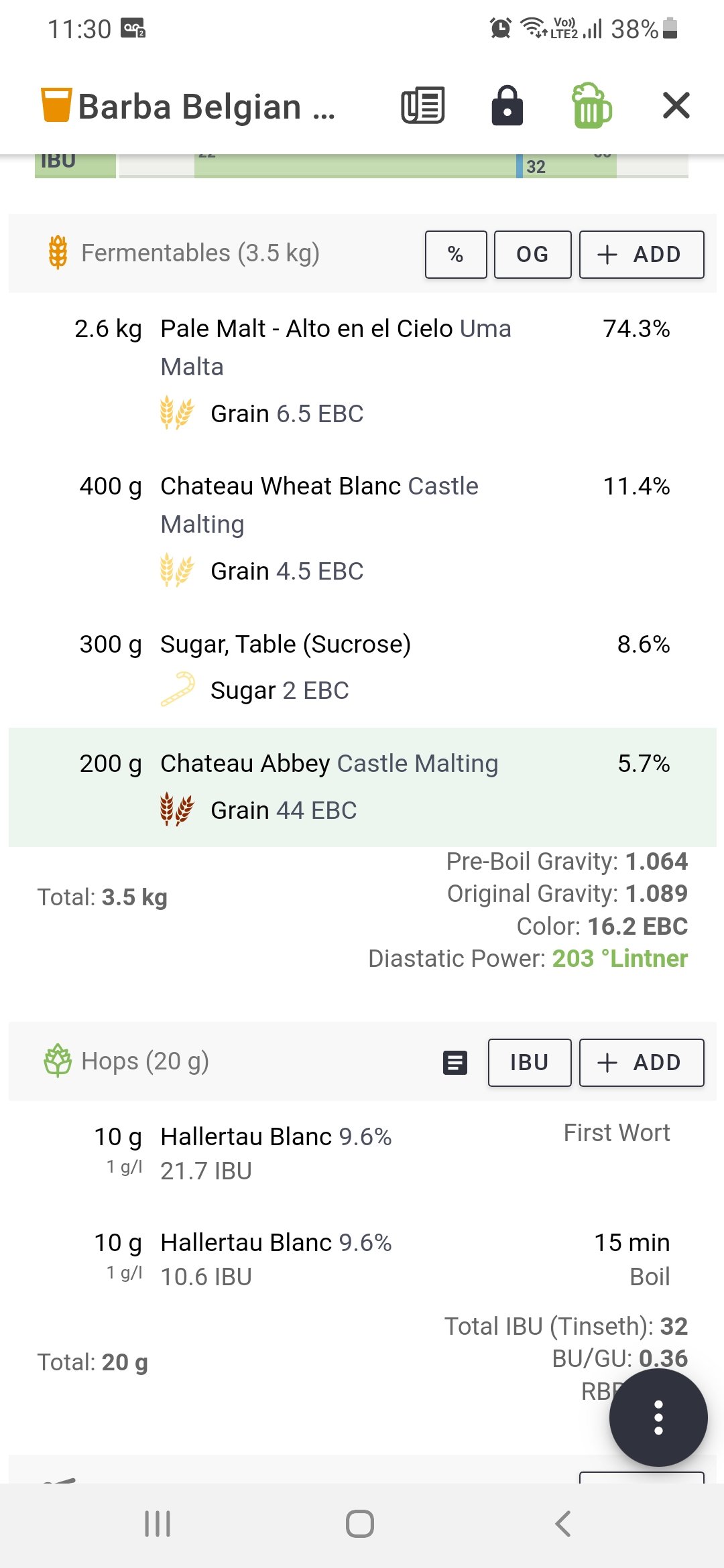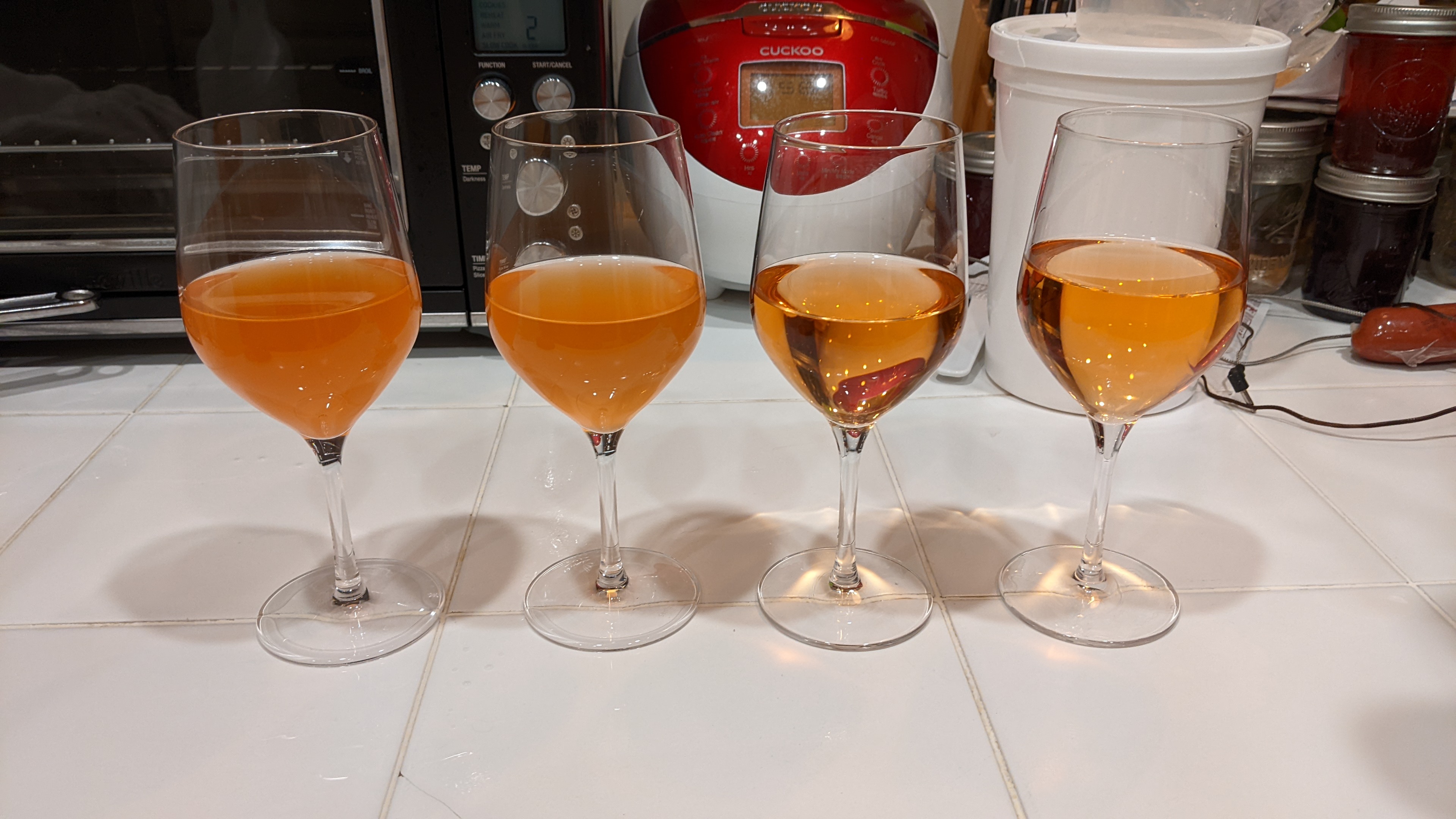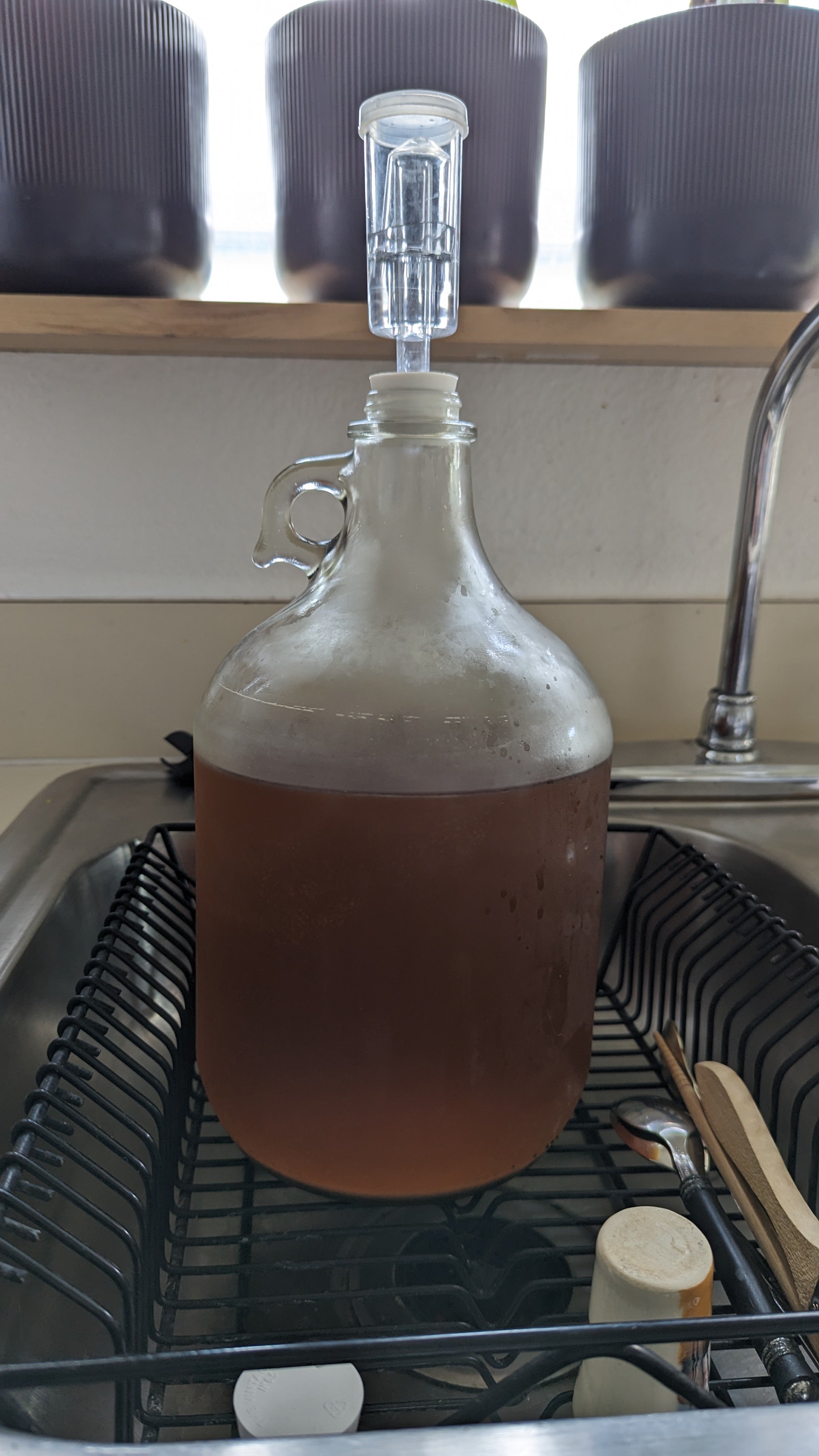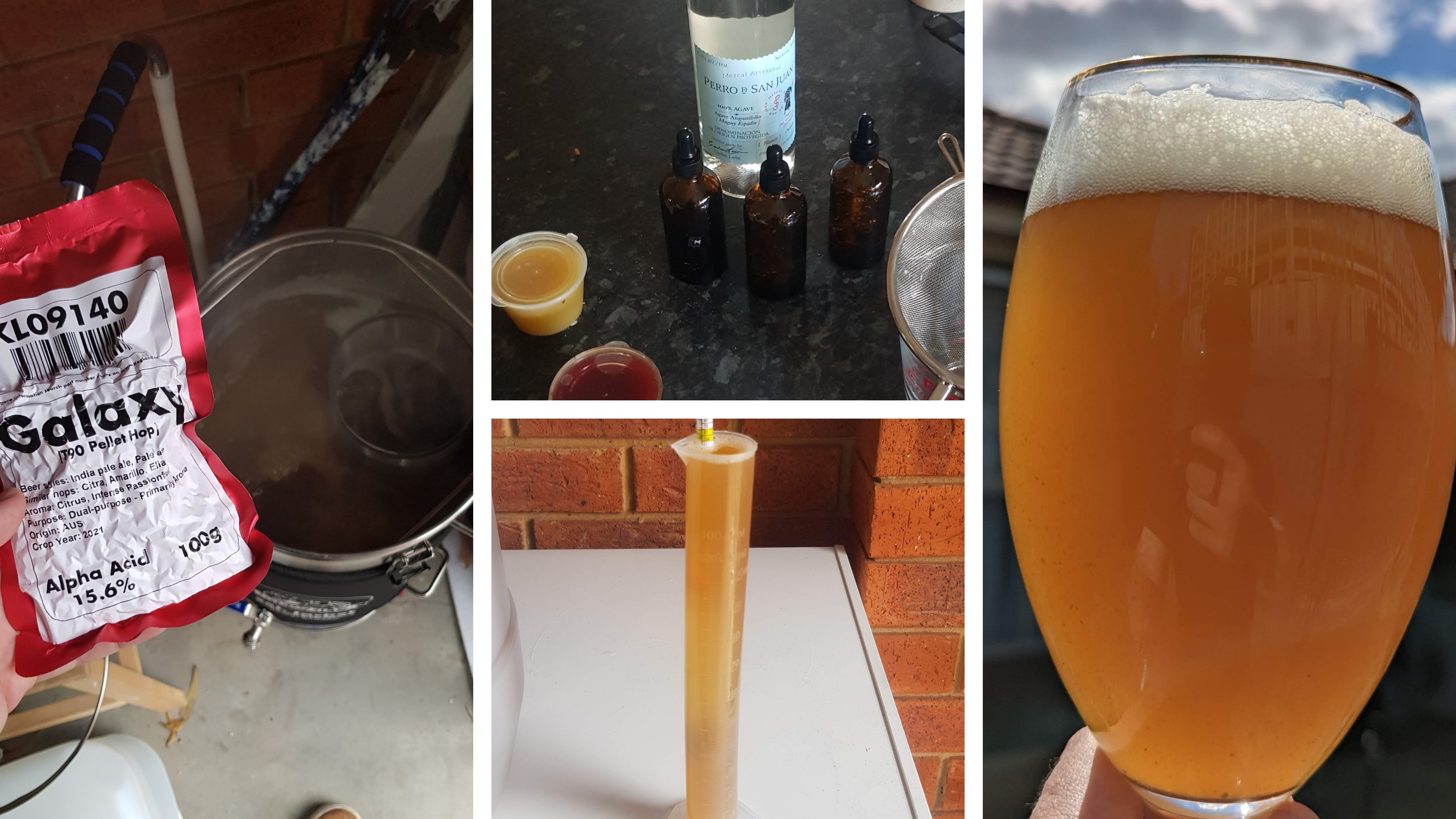My moto is that alcohol is made for thousands of years - first make it easiest way possible then try something harder. This guide is ment to be that. Also sorry for my mistakes I am not native speaker.
So what is wine
Wine is non carbonated drink made usually from grapes, but you can make it from lots of different fruits - currants or apples for example.
Starting juice have around 17-20°Bx (17-20% of sugar) but can get as high as 25°Bx in some cases.
It is fermented completely in carboy, or other fermenting vessel, then aged in barrels or put directly in bottles.
And what is cider or hard cider
Cider is usually made from apples or pears, is carbonated and for me it is more similar from fermentation point to beer.
Starting juice has around 13°Bx, it is similar to beer OG.
Fermentation is nearly the same as beer - you put it in fermenter for primary, then at the end of it you transfer it to bottles for secondary fermentation - rest of the sugar is for carbonation.
How to make wine
- juice
For grapes and currants you need to first get rid of stems - they make bitter taste when pressed. Individual grapes are mashed and then pressed or you can use kitchen juicer.
Or you can buy it.
- fermentation
Red wine - you first partially ferment mashed grapes (this step is called maceration) then you press it and ferment completely.
White wine - you ferment only the juice.
Other fruits - they usually doesn't have enough sugar so you have to add some.
Apple juice has about 13°Bx so you have to add min. 50g per liter.
Currants are really sour and don't have any sugar so juice is diluted 1:1 with water and all sugar is added. Or it can be done like red wine - mash, mix with water and sugar.
Pitch yeasts and let it sit in carboy until all yeast activity stops (it stops bubbling).
- clarifying/ageing/bottling
Transfer your wine to clean carboy, let it sit at least a week or until it is clear.
Bottle it and wait.
How to make cider
- juice
Best choice is to make it from your own apples. It is really hard and time consuming if you don't have the right equipment. But if you contact local cidery or you live somewhere where it is possible to get them pressed this is the best option. On store bought juice look for preservatives that may stop or slow fermentation - for EU friends e200 - e219 are harmful, e220 - e228 should be fine (sulfites).
- fermentation/ bottling
Pitch yeasts and wait.
Fermentation is complete at about 1 - 1.5°Bx and you can bottle it.
Or you can wait until the fermentation stops and add sugar to bottles.
Few tips:
-
Don't worry too much about infection. Fruit juices are yeasts play ground, so if you add strong strain it will outcompete all yeasts that are in your starting juice.
-
When selecting yeasts there is no good or bad choice. I have great experience with ALE and wine yeasts for cider and for wine take some wine yeasts which are available to you.
-
Look what is available to you - I have access to few apple trees that nobody wants so I make cider from them, have currants and vines on garden...
-
Don't complicate it. You can make clear, nice wine/cider if you use sulphates, clarify it with enzymes... But it is not necessary.
-
It is very drinkable through the fermentation (you can buy here partially fermented wine "burčák"). I made about 150l of cider last year and less than 60l got in the bottles. So if you don't want to mess with ageing/ clarification drink it quickly.
- This is my thought diarrhea on night shift - needs corrections.
- I will add pictures of the process in the final version. Or in fall when I will be making it.

 1st time brewer:
1st time brewer:





